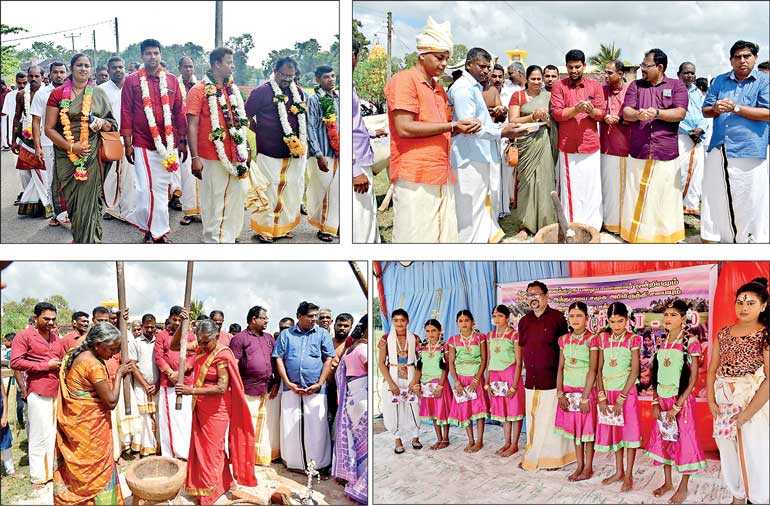Tuesday Feb 24, 2026
Tuesday Feb 24, 2026
Friday, 24 January 2020 00:00 - - {{hitsCtrl.values.hits}}

Hindus across Sri Lanka celebrated Thai Pongal, a Hindu harvest festival dedicated to the Sun God. The festival is a public holiday in Sri Lanka. The Hindus among them are celebrating the “Pongal” harvest festival, popularly known as Thai Pongal, celebrated in the first four days of the month of Thai in the Tamil-Hindu calendar.
Tamil culture has been forgotten for various reasons by many years, but now citizens have a responsibility to restore them and give back to society. This Pongal festival was concluded with a noble purpose. It is noteworthy that many of the village organisations have worked closely to conduct this event successfully.
That is why Eastern University Alumni Association of Sri Lanka (EUAAS) organised a Regional Pongal Festival with collaboration of Eastern Hindu Religious and Social Development Association (EHRSDA) in Thikkodai Village, Batticaloa on 19 January.
This Festival was chaired by NHRDC Assistant Director S. Thanigaseelan who represented the Eastern University Alumni Association of Sri Lanka. The Chief Guests were Ministry of Education, Eastern Province and Divisional Secretariat Porativu Pattu, Batticaloa Provincial Director S. Navaneethan, EHRSDA President T. Thusyanthan, and Ranaviru Housing Scheme, Ampara District In-Charge Geerthi Jayawardana.
The traditional walk started from Ganesha Maha Vidyalaya, Thikkodi to commemorate the heritage of the Tamils and the farmers. After that, the Pongal Celebration commenced following the Pooja events and ended with a number of stage programs.
S. Thanigaseelan said that “Today the heroes of the event are our farmers and we have to celebrate them. But today they are living in poverty and very poor conditions. The majority of Batticaloa’s residents are engaged in agriculture – especially paddy farming. Taken as a whole, 58% of workers are employed in the agriculture and fisheries sector. Adverse weather and climatic changes, capital shortages, high cost of inputs, access to credit difficulties, and poor quality of output are affecting agricultural productivity in Batticaloa, and impacting on the incomes of the farmers in Batticaloa. Because of this the majority of these workers are poor due to low product and incomes from employment. So we will be grateful to them, and my humble appeal is that we should focus on recovering the farmers and improving them in the near future.”